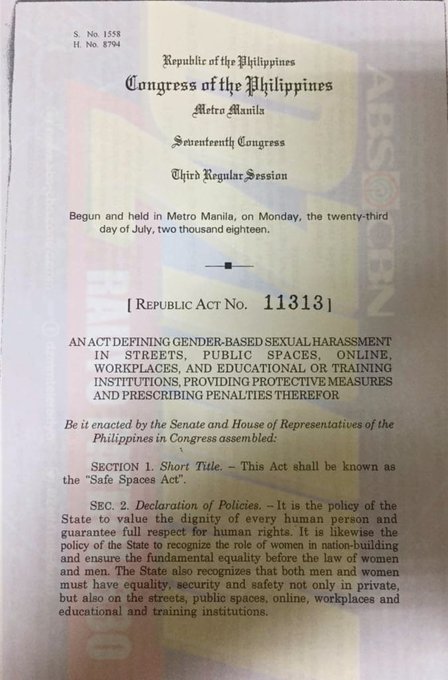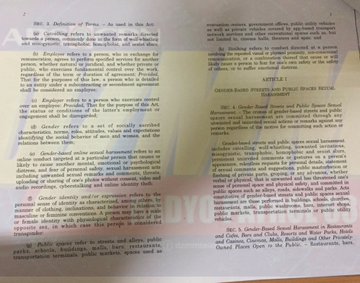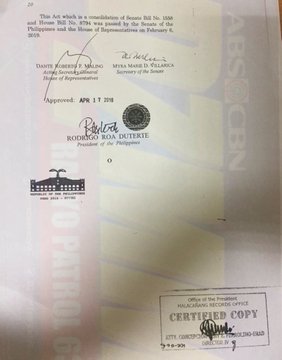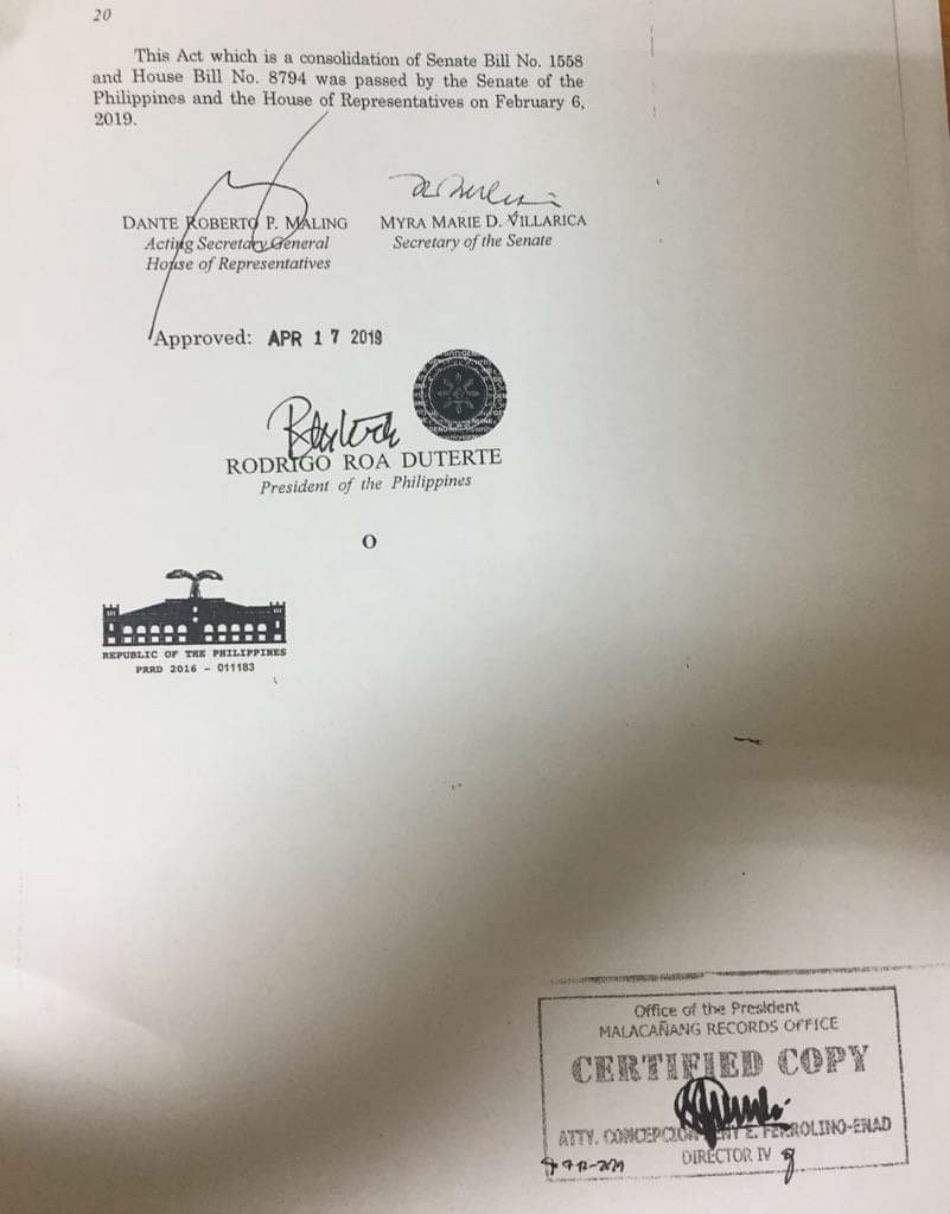President Duterte has signed into law the anti-bastos bill, which imposes stiffer penalties on a range of acts from catcalling, sexist slurs, stalking and cyberstalking.
One of the law’s principal authors, Senator Risa Hontiveros, earlier said that the proposed measure had lapsed into law. However, a copy of the new law shows that the chief executive signed it last April 17, but Malacañang only released it to the public on Monday, July 15.
Loading...
Republic Act 11313 or the "Safe Streets and Public Spaces Act" seeks to prevent gender-based sexual harassment from occurring in streets, public places, online workplaces, and educational and training institutions.
According to the law, these crimes are “committed through any unwanted and uninvited sexual actions or remarks against any person regardless of the motive for committing such action or remarks.”
Among these acts are:
- cursing
- wolf-whistling
- catcalling
- leering and intrusive gazing
- taunting
- cursing
- wolf-whistling
- catcalling
- leering and intrusive gazing
- taunting
- unwanted invitations
- misogynistic, transphobic, homophobic, and sexist slurs
- persistent unwanted comments on one's appearance
- relentless requests for one's personal details such as name, contact and social media details or destination
- use of words, gestures or actions that ridicule on the basis of sex gender or sexual orientation, identity and/or expression.
- misogynistic, transphobic, homophobic, and sexist slurs
- persistent unwanted comments on one's appearance
- relentless requests for one's personal details such as name, contact and social media details or destination
- use of words, gestures or actions that ridicule on the basis of sex gender or sexual orientation, identity and/or expression.
Senator Leila de Lima had earlier criticized Duterte for not acting on the measure.
Duterte has made controversial remarks about women, which some groups find to be misogynistic or sexist.
He has drawn flak many times for his comments, particularly for his joke about an Australian woman raped in Davao City in 1989.
Local government units are mandated to pass ordinances based on the law, while the Philippine National Police and the Metropolitan Manila Development Authority will arrest those who violate it.
Those found guilty of violating the Bawal Bastos Law will be fined P1,000 to P100,000, and may also be imprisoned for 1 month.
Online sexual harassment, cyberstalking, invasion of privacy and harassment in educational institutions are banned. Those found guilty of these acts will be fined P100,000 to P500,000.
Schools and universities are ordered to create standard procedures, which harassed students or teachers will follow to file their complaints.
The Philippine Commission on Women will lead in reviewing the implemented provisions of the law along with other government agencies.















0 Mga Komento